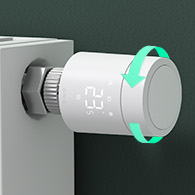In my kitchen I have a gas hob that was fitted in 2003 along with the works to create the alcove the hob sits in. Its fitted into an old chimney alcove - see the attached photo.
I need to change the hob for a new gas hob and also will be renting out the property thus will need a landlord gas cert.
The existing height inside the alcove is 716mm, 850mm wide, 340mm deep, 140mm gap either side of hob. There is no combustible material on the side or above.
I understand there is a minimum clearance gap of 760mm above a gas hob in the regulations since 2009 but reading the regulations it always seems to says the clearances are to combustible materials. Would this affect me getting a landlord cert as the work was done pre-reg changes and whilst I have less clearances they are to non-combustible materials?
Can anyone offer advice on the above.
I have considered changing the hob to an electric one but there is no suitable electric supply near the hob.
I need to change the hob for a new gas hob and also will be renting out the property thus will need a landlord gas cert.
The existing height inside the alcove is 716mm, 850mm wide, 340mm deep, 140mm gap either side of hob. There is no combustible material on the side or above.
I understand there is a minimum clearance gap of 760mm above a gas hob in the regulations since 2009 but reading the regulations it always seems to says the clearances are to combustible materials. Would this affect me getting a landlord cert as the work was done pre-reg changes and whilst I have less clearances they are to non-combustible materials?
Can anyone offer advice on the above.
I have considered changing the hob to an electric one but there is no suitable electric supply near the hob.



